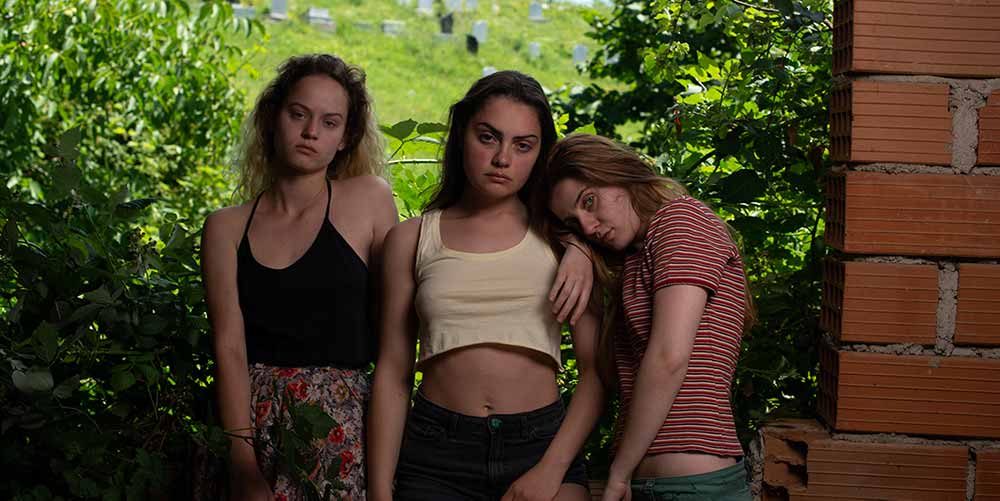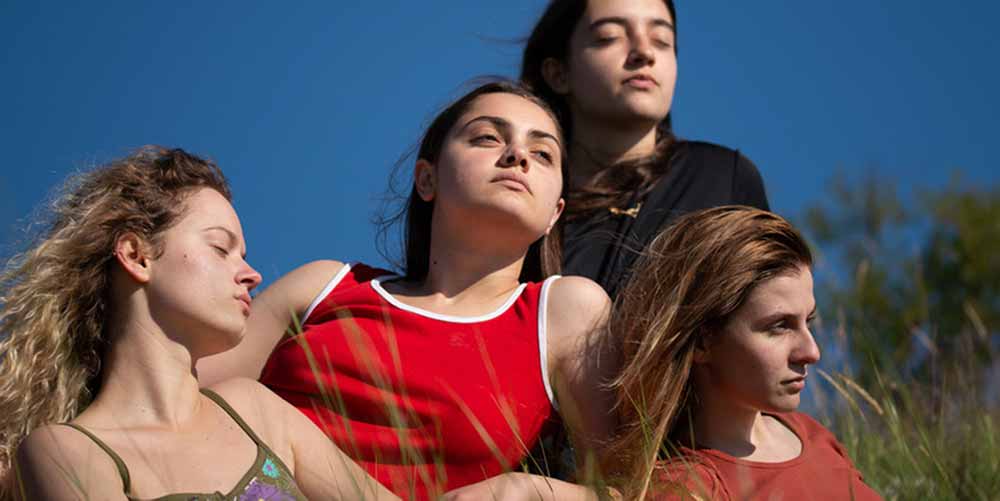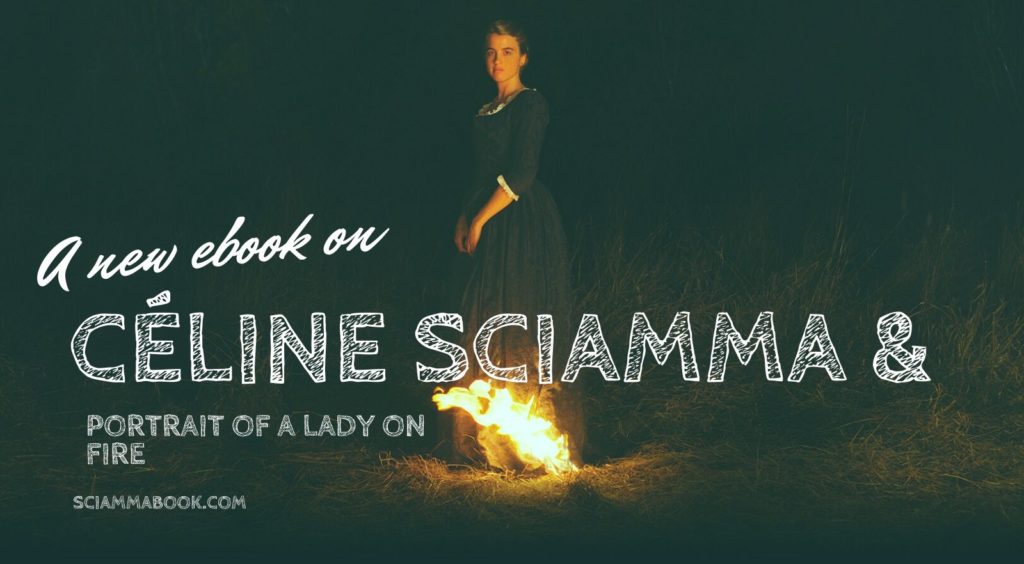Portrait of a Lady on Fire actress Luàna Bajrami makes a wonderful directorial debut with The Hill Where Lionesses Roar, a coming-of-age tale set in Kosovo.
Click here to find all of our TIFF 2021 coverage and sign up to our TIFF newsletter.

We’re running a daily TIFF 2021 newsletter to give you all our reactions to the best new films as they premiere. Click here to sign up for free.
Set during the summer before their adolescence crashes hard into adulthood, The Hill Where Lionesses Roar follows three teenage girls in Kosovo grappling with their lack of freedom. This is the directorial debut of Luàna Bajrami, whom you may know as the French actress who played the supporting role of Sophie in Portrait of a Lady on Fire (Céline Sciamma, 2019). At only twenty years old, Bajrami is already an exciting actress and, now, a promising new director, who also wrote, produced, and co-edited her own film. Drawing on her Kosovan heritage, she has made this flawed but heartfelt, smart coming-of-age tale.
Qe (Flaka Latifi), Li (Era Balaj), and Jeta (Urate Shabani) are best friends living in a rundown Kosovan village. For fun, they hang out on a hill, or throw rocks at empty beer bottles in an abandoned swimming pool. They’ve just finished school, and there are few prospects awaiting them: university was one of few opportunities they had to get out, but none of them are accepted, which causes Li to rage in hopeless frustration at her school teacher. To her, not getting into university is like a death sentence, keeping her in her village along with Qe, who’s reluctant to take over her family’s salon business, and Jeta, an orphan whose adoptive father is sexually abusive. Their only excitement is each other.

The film gets really interesting with the introduction of Lena (played by Bajrami), a girl from Paris of about Qe, Li, and Jeta’s age, who is visiting her grandmother in Kosovo. Lena is quiet, angsty, and a bit naive. She seems excited to get to know the girls, but they’re wary, even a bit aggressive toward her. When they ask Lena which she prefers, France or Kosovo, Lena replies that she prefers Kosovo to the stifling Paris, because it feels more “free.” It’s a striking statement, given how little freedom we know Qe, Li, and Jeta have. But then again, Bajrami showcases the beauty of the Kosovan landscape, which is stunning even in places where rubbish is strewn by the sides of the roads. Lena has the luxury of visiting this beautiful landscape without being stuck to it. For the girls, her comment about the freedom of Kosovo feels like a slap in the face.
The grass is always greener on the other side, but at least Lena has the option to choose between Kosovo and France. At one point, a melancholy Lena muses that “sometimes it’s better not to choose,” but she seems unaware of the privileged position she’s speaking from. After a few scenes, Lena leaves the film abruptly and without warning: she’s there, speaking with Qe one moment, and then she’s never mentioned again in the second half of the film, despite the fact that nobody ever said when she was returning to Paris. On one hand, it feels like a missed opportunity not to mine more out of the tension between Lena and the girls. On the other hand, Lena’s ability to leave with such ease, while the girls are fixed to one place, is very telling.

For the girls, leaving means doing something drastic: starting a gang and stealing enough money and shiny things to get them the hell out of their village. They call themselves Lionesses of the Hill, and for a while, their plan is going well. Not only are they stockpiling cash, but their excitement for life is invigorated, because they feel like they have a future. But given the danger and precarity of building a life through crime, there’s a looming sense that it can’t last; that this is the end of something, not the beginning. The girls drive away from the village and spend a few glorious days by the beach, and when they’re about to leave, they turn around for one last splash in the sea. It feels like they, too, know that it will all be over soon.
It’s this final section of the film that is the least fleshed out. Just like Lena’s exit, the film’s abrupt ending might be part of the point, but it also feels like Bajrami is cutting some corners. With a bit more time spent showing us how the girls’ plans fall apart, The Hill Where Lionesses Roar could have been an even fuller film. Still, the girls’ final glory days are so beautifully shot and edited together, and our investment in the girls is so strong, that Bajrami still manages to create an emotionally impactful ending.
Stay in the know about TIFF 2021 films like The Hill Where Lionesses Roar.
Subscribe to Seventh Row’s TIFF newsletter.
We’re running a daily newsletter during the festival: every morning, we’ll send subscribers a dispatch about all the new films we’re watching, good and bad, to let you know what’s worth keeping an eye on.
Click here to subscribe to the TIFF 2021 newsletter.


